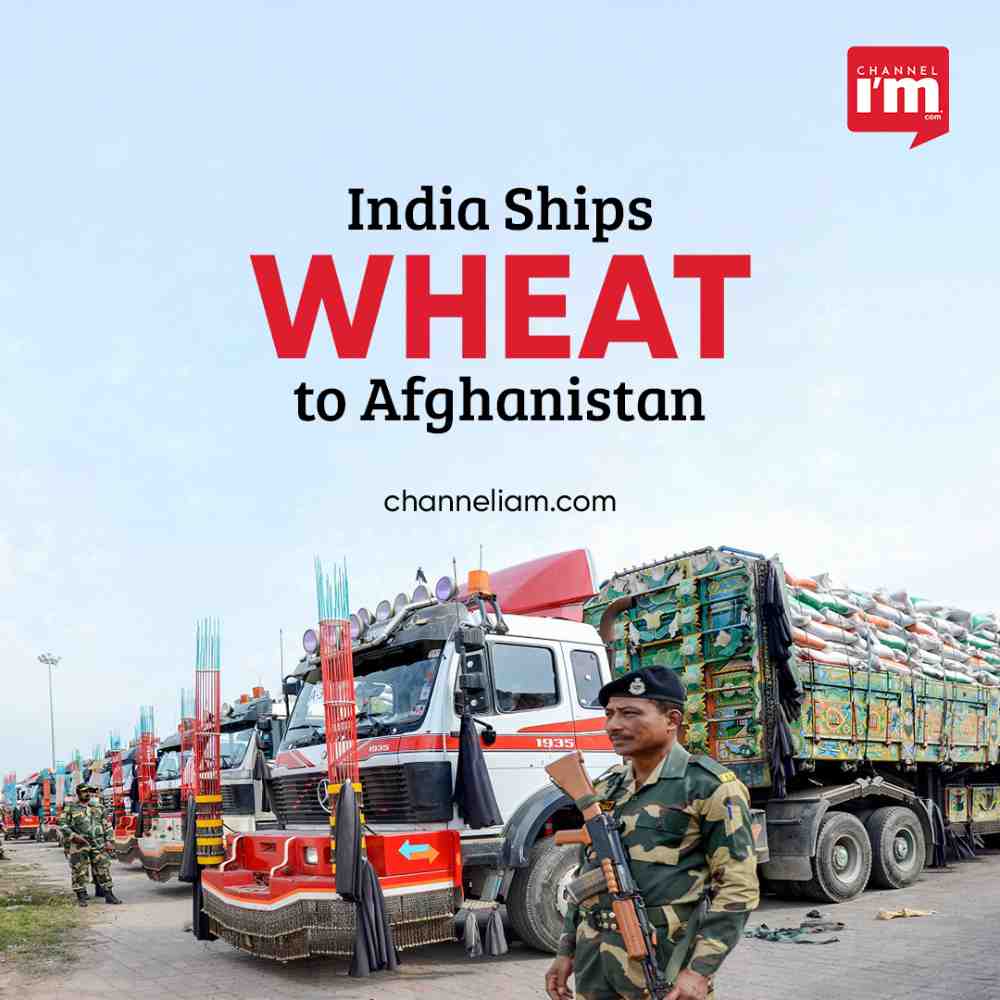India to ship 20,000 tonnes of Wheat to Afghanistan via Chabaha
The MEA stated on Tuesday that India will transfer its next cargo of wheat to Afghanistan under the Taliban administration via Chabahar. The decision was revealed during the inaugural meeting of the India-Central Asia Joint Working Group (JWG) on Afghanistan in Delhi, following the expiry of an agreement with Pakistan to extend the time for shipping wheat through land route, and efforts to prolong the period had failed.
While India had provided around 40,000 metric tonnes (MT) of the 50,000 MT pledged last year following an agreement with the former PM Imran Khan administration, the shipments had to be canceled due to floods in Pakistan, and the time frame given by Pakistan had expired. Prior to 2021, India used the Chabahar route to export wheat supplies to Afghanistan.
At the inaugural meeting of the India-Central Asia joint working group on Afghanistan, New Delhi announced the new tranche of wheat aid to Afghanistan in the amount of 20,000 metric tonnes. The situation in the war-torn country was discussed extensively during the inaugural meeting of the India-Central Asia joint working group in Afghanistan, which was held in Delhi.
According to a statement issued by the Ministry of External Affairs following the meeting of senior officials, the Indian side has announced a partnership with the UN World Food Program to deliver 20,000 MTs of wheat to Afghans via the Chabahar Port in order to address the current humanitarian situation.
While India had provided around 40,000 metric tonnes (MT) of the 50,000 MT pledged last year following an agreement with the former PM Imran Khan administration, the shipments had to be canceled due to floods in Pakistan, and the time limit permitted by Pakistan had run out. Prior to 2021, India utilized the Chabahar route to supply wheat to Afghanistan.

Months after the Taliban took control of Kabul in August 2021, India announced 50,000 metric tonnes of wheat help to Afghans, who were suffering from a severe food crisis. Following that, the consignments were transferred to Afghanistan through land via Pakistan. After nearly a month of negotiations, Islamabad agreed to the transit facility.
According to sources, on request, India provided capacity-building training courses in the field of fighting illegal drug trafficking to key stakeholders/partner agencies of UNODC and relevant officials/stakeholders of Central Asian Republics. The participants praised India for hosting the inaugural Joint Working Group Meeting on Afghanistan at the level of senior officials and resolved to undertake regular meetings in this manner.
India has yet to acknowledge the Taliban authority in Afghanistan and has advocated for the development of a truly inclusive government in Kabul, as well as stressing that Afghan land should not be used for terrorist actions against any nation. India has been advocating for unrestricted humanitarian aid to Afghanistan in order to ease the country’s humanitarian problems.
India re-established its diplomatic presence in Kabul in June of last year by deploying a “technical team” to its embassy in the Afghan capital. With security concerns, India withdrew its diplomats from the embassy when the Taliban took power in August 2021.
